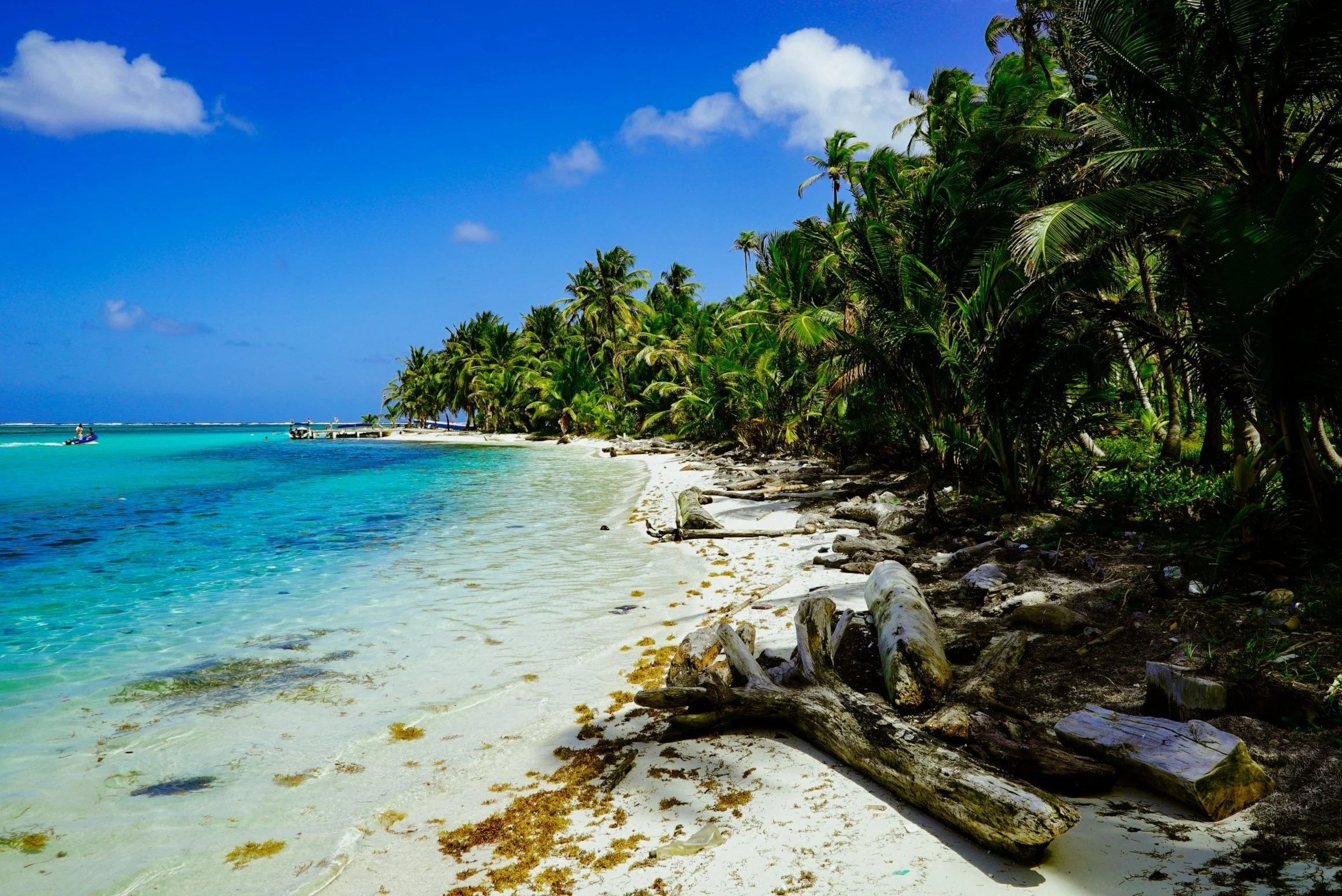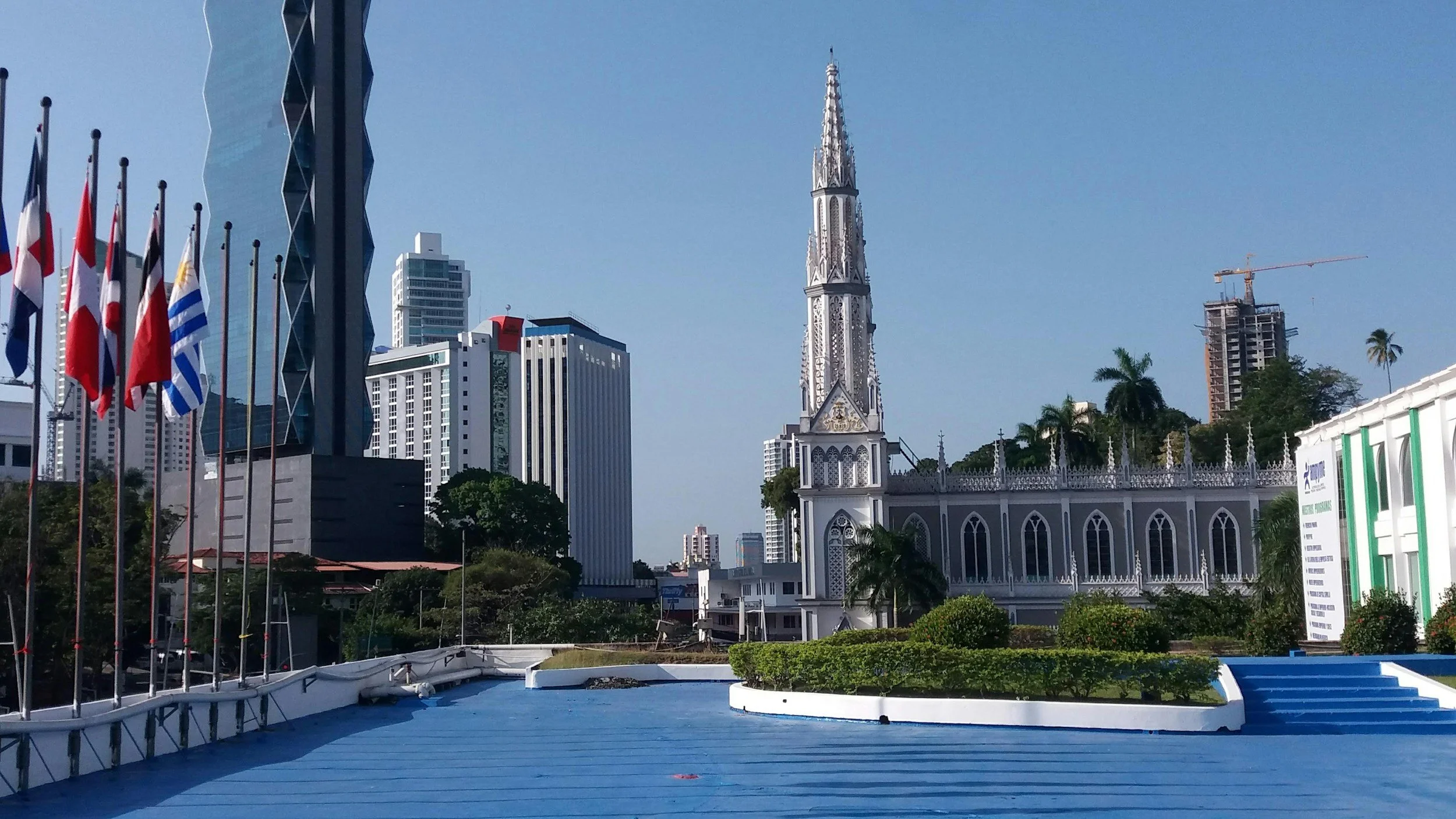My Expat Story – I Moved to Panama
Donna (age 64), relocated from the United States to Panama in 1984, after marrying her Panamanian husband. They raised two children and lived many happy years together. In 2020 they separated and in 2021, mutually agreed to divorce. But Donna remained in Panama!
You may recall Panama in the mid-1980s was a turbulent place. In 1981, a few years before Donna relocated, the Head of Panama’s Defense Forces, General Manuel Noriega, reportedly a CIA asset, consolidated power and became the country’s de facto ruler by 1983.
Noriega used that position to build up the size of the Panama military, and steadily increased its power over Panama's political and economic life. In 1988, the U.S. President at the time, Ronald Reagan, declared a state of emergency in the wake of a failed coup in Panama. The following year (1989), the opposition party won the Presidential elections. Noriega declared the results invalid and enforced a "state of war", suspending civil liberties. That same year, the US invaded Panama, ousted Noriega, and destroyed the Panama military, instituting a civilian rule of law. To this day, Panama has no military forces.
Fast forward to 2024, and I met Donna in Portugal. I was astounded by the strength of the woman, and her career history. The following interview offers fascinating insight into what drives this lady from South Dakota.
Chantal: What were you doing in the States, before moving to Panama?
Donna: I left my home State of South Dakota in 1980, to move to Washington, DC. I was working on Capitol Hill at US Senator Larry Pressler from South Dakota. I lived at the International Student House (ISH) near DuPont Circle in DC. At the time, it was ‘home’ to about 60 students from around the world.
Chantal: I understand you met your Panamanian husband, then relocated to his homeland in 1984… had you ever been to that country before relocating there?
Donna: Yes, in 1982, I made a trip to Panama and Colombia; my first time traveling abroad. So, Panama wasn’t entirely ‘unknown’ to me.
Chantal: Did you speak any Spanish when you relocated?
Donna: Yes. I spoke "un poco" (a little). I hired a tutor and became fluent in Spanish within a few years. I founded and operated a public relations company in Panama, which I ran from 1985 to 2020, pioneering the concept of strategic communications as a managerial discipline practiced across borders, providing services to over 90 well-known, blue chip multinational companies.
My husband and I lived in a neighborhood called "Bella Vista" (Beautiful View), in downtown Panama. Post-divorce, I resettled to a community named ‘Panama Pacifico’, which was built on the site of the U.S. Air Force Howard, that was closed in 1999, as per the Panama Canal treaties. Panama Pacifico is Latin America's largest Master Planned Community. I also spend time on the Pacific Riviera, Nueva Gorgona, and Coronado, enjoying the beaches, sunshine and incredible views.
Chantal: These days, I understand Panama offers some attractive options for those considering relocating there. How would you suggest that it is approached?
Donna: Panama has many, many visa options for foreigners who wish to relocate. Choosing the right option is key, as is getting your paperwork correct. I recommend hiring a migration agent or lawyer to ensure every ‘I’ is dotted, and ‘t’ crossed. That’s important! The government is very specific about their requirements, but once you fulfill them, you are good to go!
Currently, tourists from the US and Canada can remain in the country for 6 months on a tourist visa.
Chantal: What were the hardest things you had to overcome before and then after relocating?
Donna: The subtle cultural differences… Since I was living and working in Panama, married to a Panamanian with a Panamanian family, I was without a doubt, in a total cultural immersion.
I joined an international women's social club, called "Who's New". There were more than 40 different nationalities represented. I was President of the organization twice and I also served on the board of The American Society, actively participating in their events. This enabled me to make friends and widen my social networks beyond my husband’s.
I also made many professional contacts and friends through my work as the founder / owner of a leading public relations company in Panama. These days, friends are easily made in the Expat communities through groups and events such as the Beach Business Network, Trivia Night, the Thursday market, and… well, you get the idea.... Expats tend to be very social!
Chantal: How does the cost of living compare with the States?
Donna: It’s cheaper, but you must still watch where you shop and what you buy. Panama has many imported products, often, with a less expensive local option. If you continually buy imported products, then your outgoings will be higher than necessary.
Real estate for sale is plentiful, with many great options at prices that are so much lower than in other more developed nations. It’s a buyer's market, so shop around and rent in the area where you are thinking about buying, before you buy! That way, you can be sure about your choice, as it’s easy to buy, but harder to sell.
Chantal: How are the social services and do you feel safe?
Donna: To access social services, you must be employed by a Panamanian company that pays social security and taxes, subtracting these from your wages and adding in their contribution as your employer. That means you need a work permit, which not all visa categories include.
Alternatively, if you’re a dependent of a Panamanian citizen or work permit holder that pays social security taxes, you can access social services as their dependent.
Panama is known as a safe destination in Latin America. I feel safe all the time and do not practice any more safety practices in Panama than I do in the US and Europe.
Chantal: What important things have you learned by being immersed in a different culture?
Donna: If you learn the local language, your life opens like a flower. Suddenly, you can speak with everyone, pick up on cultural nuances, and have more understanding of what makes the locals tick. Panamanians have a different culture and value-system from mid-Westerners. It’s not necessarily ‘wrong’, just ‘different’. Relationships and family are everything in Latin America, and speaking the language allows you to cultivate relationships with everyone.
Chantal: You were recently in the States. Would you ever consider relocating back to the States later in life?
Donna: Of course! I love my home state of South Dakota, where the West begins. It has wide open spaces. I co-own farmland with my other siblings, inherited from my mother, who inherited it from my father, who inherited it from his father, my Grandpa Henry. Grandpa Henry received it from the US government, breaking ground on this prairie land close to the Missouri River. We pheasant and deer hunt on our land every fall.
I also enjoy the Washington, DC area very much. It’s known as the "DMV" (the District, Maryland and Virginia), and I spend time there with my third grandchild, who was born in Alexandria in May.
Chantal: What would you miss most about Panama if you returned home to the States?
Donna: The warmth of Panamanians, the natural beauty, and the incredible vistas of the Pacific Ocean. I would desperately miss my daughter, son in law and two grandchildren (7 and 3) too, as they have chosen to make their home here in Panama.
Chantal: What are the biggest benefits you see of relocating to Panama over other places?
Donna: There are no hurricanes! Panama is located just south of the hurricane belt. There are excellent air connections to the US, Canada, South and Central America and Europe. Panama has just opened Terminal 2 at the Tocumen International Airport, a $900 million, modern, state of the art facility. Our national airline, Copa, has more than 80 direct, daily flights to destinations in the Americas.
Modern, state of the art medical care is available in Panama City and larger cities, such as David. Panama’s private health insurance does not insure pre-existing conditions, but private medical care is readily available and cost efficient in most cases for those who are self-insuring.
Panama's discount program for retirees was launched in the late 1980's. Both Panamanians and expats can receive discounts on goods and services; such as 25% off restaurants, 15% off fast food restaurants, 25% off the base airline fare, etc. This encourages older people to socialize at restaurants and enjoy each other's company, rather than being isolated at home.
There are tremendous opportunities to live on the coast or in the mountains, with their contrasting weather and climates. Living in the city and the developed areas tends to be higher cost. There are an increasing number of retirement areas being created, which are within local communities.
Panamanians are friendly and very open to foreigners. It’s home to the Panama Canal, which has delivered international guests to this small nation for centuries now. You will feel very welcome.
Panama is also a great jumping off point for exploring other destinations in Central and South America.
Chantal: Wow! OK. You’ve got Panama on my Bucket List now. I guess I’m just going to have to come across and explore! Thanks Donna!
For official visa information relating to Panama, please visit our VISAS page.








